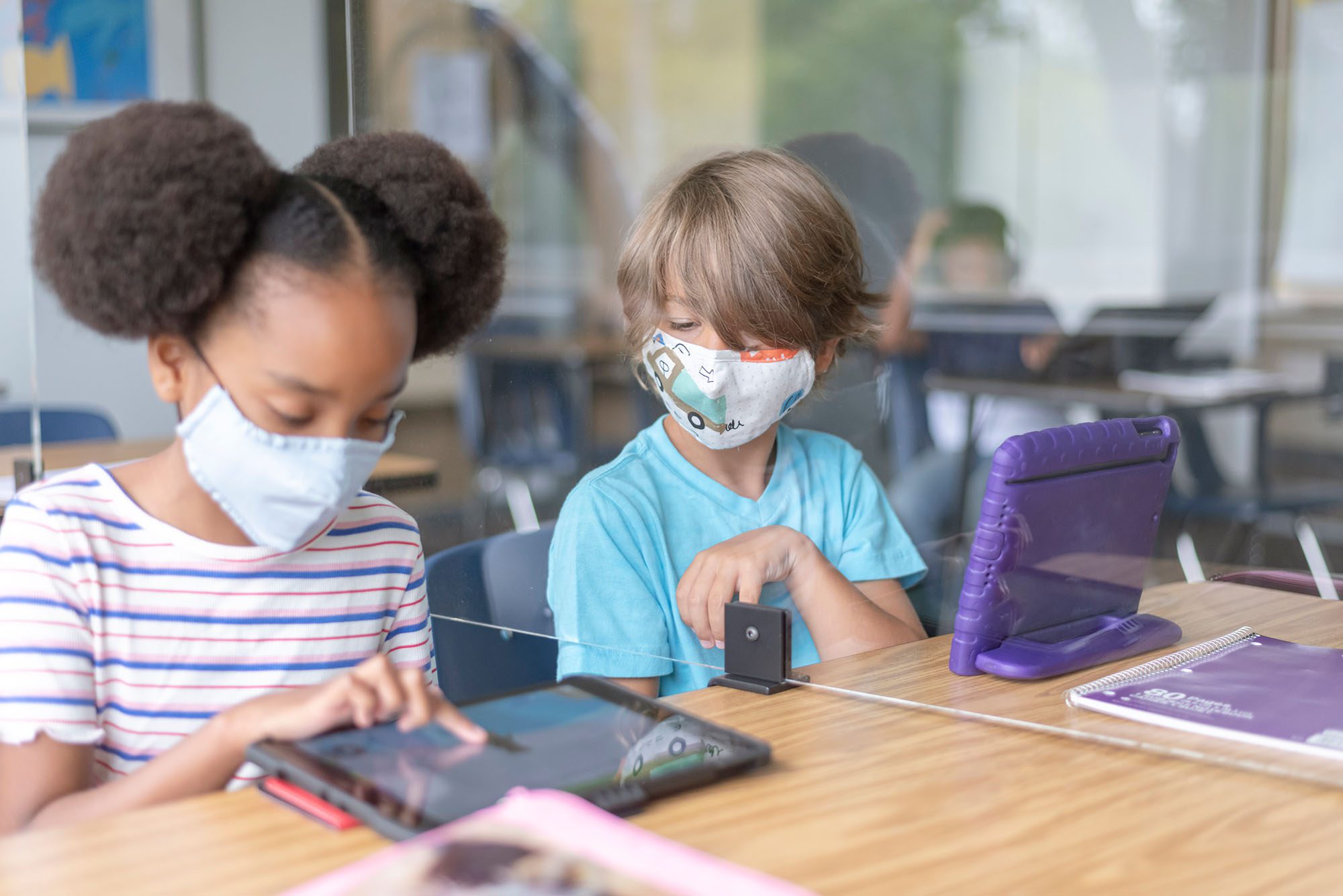
December 7, 2021 By Rich Barlow
This article was first published in BU Today and was shared with permission.
Black male students in the Hingham, Mass., public schools are three to four times more likely than white peers to be classified with a learning disability. That jarring discovery last year triggered soul-searching that has led the school system to BU’s Wheelock College of Education & Human Development.
“Knowing that implicit bias exists within our structures, we first purchased updated psychological testing tools to account for bias and neurodiversity,” says Suzanne Viennes, Hingham Public Schools executive director of student services. Then she contacted Wheelock for help “in providing instruction to our faculty [about] disproportionality, assessment, instruction, and intervention.” Nancy Nelson, a Wheelock assistant professor of special education, led a team that provided the first of three instructional sessions with Hingham faculty in November, in addition to other aid.
“We are discussing a plan for a second year in partnership with Dr. Nelson and her team,” Viennes says.
That Viennes and Nelson were able to collaborate is the result of a cross-country move. The federally funded National Center on Improving Literacy (NCIL), based at the University of Oregon for its first five years, now calls Wheelock College home. Nelson is among the half dozen faculty who have made the move to BU, including her husband, and the center’s director, Hank Fien, a Wheelock professor of teaching and learning.
The US Department of Education signed a five-year contract to house the NCIL at Wheelock as of October 1, with offices in the school’s building at 2 Silber Way.
The NCIL, according to its website, “is a partnership among literacy experts, university researchers, and technical assistance providers.…Our mission is to increase access to, and use of, evidence-based approaches to screen, identify, and teach students with literacy-related disabilities, including dyslexia.”
Fien says a key part of the NCIL’s work in Hingham and across the country is to redress inequities for students of color and those with disabilities. “The data are damning,” he says. To cite just one of those data points: in many US school districts, only 10 percent of fourth graders who are poor, of color, with disabilities, and English learners can read at the appropriate level.
“We brought 13 large grants and contracts with us from [Oregon] to BU—approximately $30 million in funding,” Fien adds. “As a part of my move, I am opening a new Wheelock research center named BU TEACH,” overseeing the NCIL and the grants. BU TEACH is a work in progress and will likely launch this winter.
Nelson says her work in Hingham illustrates part of the NCIL’s approach. “School systems should be prevention-oriented toward providing effective instruction and supplemental support,” she says, “so that students from all racial and ethnic backgrounds do not fall behind. Based on the way schools identify students for special education…and what we know about achievement gaps and how they grow over time, this type of prevention focus is critical.”
As schools grapple with COVID-19, Nelson says, the pandemic has disproportionately hammered students of color and those with disabilities: “Beyond Hingham, if schools don’t attend to these issues by devoting substantive attention and resources toward effective instruction and intervention, we are doing these children and their families a great disservice.”
Wheelock last year completed a “guide-star” reimagining of its mission, expanding beyond just teacher preparation. With the literacy center, says David Chard, dean of Wheelock, the school adds to its toolkit for education equity at a time when the nation is centered on equity more broadly.
"School systems should be prevention-oriented toward providing effective instruction and supplemental support so that students from all racial and ethnic backgrounds do not fall behind." -Nancy Nelson
“The faculty and staff who comprise NCIL,” Chard says, “have been working tirelessly over the past five years to help states and school districts nationwide to ensure that they are using effective practices to improve literacy for all children, but particularly those who are identified with reading-related disabilities. To be able to read independently, to use texts as sources of information, to read for pleasure, and to use text sources to better understand our world are complex skills that require thoughtful teaching and development.
“They are also essential for equity. If you are not able to read, it is difficult to make your own decisions, to be independent and successful in an information-rich society. NCIL will be key to helping BU Wheelock transform education systems to support students who struggle with learning to read.”
While the NCIL is primarily an implementer of on-the-ground programs in schools, Wheelock’s curriculum will also benefit from its presence, Fien says: “We are working with several states and districts to develop online courses to support teachers and teachers-in-training, to learn and apply the science of reading to support all kids to become proficient readers. We intend to use this approach and work as a platform to develop a BU Wheelock degree program that is aligned with the NCIL’s scope and mission.”

